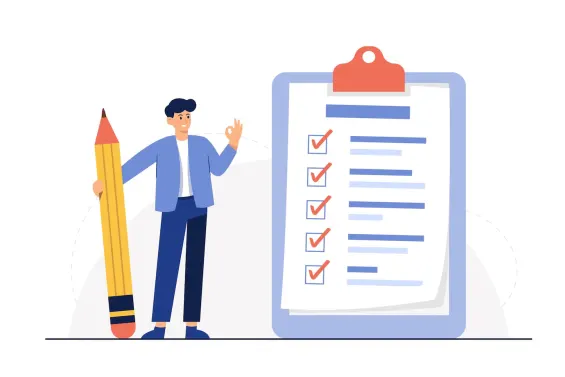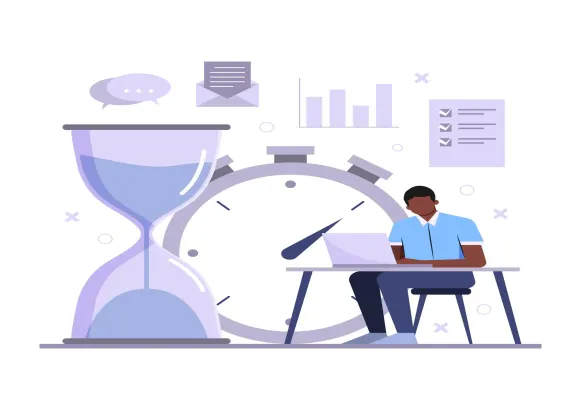This post is structured as follows.
- Zen Practices & How They Boost Employee Productivity
- 2. Mono-Tasking
- 3. Breaks & Meditation
- 4. Decluttering
- 5. Prioritizing Difficult Tasks
Want to improve employee productivity and wellbeing in your workplace? What strategies are you relying on to ensure quality employee productivity?
Employee productivity is a crucial aspect of the modern business world. It not only reflects the nature of the work environment, but also partially points to employee wellbeing. As the corporate world witnesses digital transformation and a switch to remote work practices, ensuring employee productivity may prove more difficult.
Imagine, ensuring follow-up on in-office employees and those working remotely to enhance individual productivity! Yes, modern tools are helping employers to ensure productivity in workplaces, but there is a lot to be done.
As much as there are many ways to ensure business success, many employers struggle with employee productivity. Hiring the right talent and the best managers is no longer the answer, but your way out might be Zen practices!
Zen Practices & How They Boost Employee Productivity
“Zen” or “Ch’an” means meditation. It is a holistic approach to life, work, and well-being and follows no rituals, scriptures, or doctrines. The term “Zen” is more commonly used in the western world, which pushes for mindful living.
Zen practices generally help people to find purpose, focus, and clarity every day.

We live in a world where people are unable to focus or find meaning in life. They juggle between tasks, wrestle with rushing thoughts, and are unable to focus on any activity for quality output.
Statistics indicate that at least 80% of employees feel stressed at their jobs, whereas over 40% assert that their colleagues need help on how to deal with stress.
Workplace stress, and a toxic work environment are some of the major causes of low employee productivity and unless an effective antidote is leveraged, employee productivity rates will aggravate.
Zen can help employees deal with their personal and work life effectively, and they have proven to be reliable for both employers and employees. So, here are some of the best Zen practices that can be leveraged in a workplace to boost employee productivity.
1. Good Ventilation
Science stresses that exposing the body to natural light helps it to produce vitamin D and can improve circadian rhythms. Exposing the body to enough sunlight during the day can also improve sleep quality, however, there is more that Buddhist monks assert.
Zen masters confirm that connecting with nature is associated with a range of mental, physical, and behavioral benefits.

Nature like flowers and the sun has healing properties and a positive effect on the mind. They can help an individual feel alive and happier. With that, providing good ventilation in a workplace exposes workers to natural light and fresh air that can help them to become more productive.
One study found that exposing oneself to natural light improves productivity by 2%. To substantiate, it was found that natural light improves indoor experiences in the workplace.
Zen's teachings assert that a purified work environment is a purified mind, which is more focused. With that, HR managers can work on improving ventilation in the workplace to expose the workforce to more natural light.
This not only improves productivity, but also helps them to become more alert the entire day.
2. Mono-Tasking
Many people believe that multitasking is key to productivity and getting things done. In fact, you may have been following that tactic or encouraging your employees to do so.
The modern world with all the responsibilities that come with it quite often proves that multitasking is the answer. For example; eating while going through emails, working on two projects at the same time, or creating social media content while talking to the manager on the phone.

Multitasking may seem to be an excellent tactic, but it equates to absentmindedness, therefore, mono-tasking is becoming the new multitasking. When one is unable to focus on a task, this increases the chances of mistakes, accidents, and poor memory.
It also reduces the quality of the output, and above all, it lowers IQ. Findings indicate that switching between tasks affects productivity and concentration. Also, when employees multitask, it distracts them, and they will require at least 25 minutes to refocus.
Zen practices push for mono-tasking. The Zen discipline encourages people to focus on a single task at a time to improve productivity. When employees focus on a single task at a time, this increases creativity, and concentration and reduces stress.
A focused mind has an increased likelihood to function optimally.
3. Breaks & Meditation
With all the responsibilities that life throws at us, most of us are ever in constant action. The brain is always at work trying to identify new opportunities, cultivate means to deal with crises, or sober up for an urgent task. That’s why many employees report stress, anxiety, and depressive feelings.
To make matters worse, some also suffer from sleep disorders. All these exacerbate productivity at work due to decreased morale. However, Zen practices like walking meditation and taking full breaks can help boost employee productivity.

Meditation is one of the best tactics for mental wellness. Generally, it calms the mind and frees it from unnecessary thoughts that cloud it. It pushes for mindfulness and helps employees live in the present rather than having wandering thoughts.
For better employee productivity, HR managers should encourage their teams to carry out walking meditation (kinhin). It is a simple yet effective practice that pushes for movements after long hours of sitting.
Employees can go out in a park and stretch, walk or take deep breaths to replenish their minds and body. In addition, they can take full breaks where they simply walk around without checking their smartphones or other devices.
Taking breaks offers an opportunity for introspection, and this can be done using several reflection models. Employees can identify distractors and how they can improve their productivity in the short run.
4. Decluttering
It is difficult to be productive in a congested environment. More so, when the mind is congested. Decluttering is an effective Zen-based work practice that can improve employee productivity and the workplace environment.
An organized work environment can alter the tone of the atmosphere, making it feel hygienic, calm, and friendly. It can promote creativity and productivity.

Decluttering the workplace requires cleaning up the space, professional organizing and getting rid of unnecessary items. That may also require introducing stronger organizational guidelines that encourage employees to maintain order. Another approach is to declutter the mind.
A mind which is cluttered can lead to time wastage, sluggishness, and mental confusion. Some of the best mind-decluttering methods include meditation, getting quality sleep, and setting priorities, and boundaries.
Apart from enhancing productivity, these tactics can also join your list of possible self-improvement mediums.
As an HR professional, employer, or manager, you can also improve your workplace atmosphere by providing sufficient light and comfortable seats.
5. Prioritizing Difficult Tasks
Zen's practitioners believe that the mind is fresh in the morning and this is the best time to handle intricate tasks. More so, psychology findings suggest that the human brain is designed to complete short-term memory tasks in the morning.
Therefore, plan your schedule in a way that drives you to accomplish difficult tasks in the morning and then follow them up with the less-important ones. This can improve productivity and work quality instantly.
All in all, keeping up with employee productivity levels can be daunting, as employees may display different factors that affect their productivity. However, Zen practices are a way of life that can enhance employee productivity dimensionally.
Read Next
The following articles are related to 5 zen practices to boost employee productivity.











